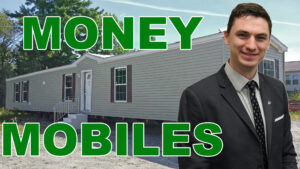It’s anyone’s worst nightmare: you’ve gone away for a long weekend, and are looking forward to getting back home. When you walk through the door, though, you discover that, in your absence, a burst pipe has flooded your home. The costs to repair flooring, replace waterlogged belongings, and find a place to stay while repairs are underway could be huge – unless you have the right insurance coverage. It’s important to understand what coverage you need before you ever need it, and it’s Jared Bellmund’s job to help you figure it out.
Bellmund, who has been in the insurance business for six years and currently works with Carolina Living Insurance, knows the ins and outs of insurance and the types of coverage different types of clients will need. The kind of insurance you need, he says, depends upon a variety of variables, ranging from whether you own or rent to where the property is located and what’s inside. The most important thing, he says, is “assessing what needs to be protected and protecting it the right way.”
For renters, that will typically mean renters insurance, which will usually run in the range of $125 for an entire year. A renters policy will cover your property as well as your liability. According to Bellmund, the best way to determine how much coverage you need is to take inventory of everything you own and determine how much it would cost to replace with a similar, new item. Renters insurance, Bellmund says, can also help to cover you in case of loss of use – if the property becomes temporarily uninhabitable, it can help pay for housing until you can move back in.
Landlords will also want to cover their property and liability, but the risks that they take on are a bit different from those that their renters face. Landlords have to consider the possibility of evictions, tenants that won’t pay rent, the damage that causes them to be unable to rent out the unit, and so forth. A good insurance policy will protect the landlord against all of these, as well as against possible lawsuits brought against them by disgruntled tenants.
For owners, the type of insurance that will be needed will largely depend upon what the property is being used for, and will be based upon replacement costs rather than most recent sales cost – a good policy, Bellmund says, will cover the cost to rebuild a home exactly like it was before. If the property is not used as a primary residence, or if it’s vacant or under construction, other coverages may be beneficial as well.
Regardless of whether you rent, own, or act as a landlord, you should figure out what coverage you need ahead of time. After all, Bellmund says, the things you need coverage for are typically those that you can’t anticipate: “it’s stuff you don’t expect, stuff you don’t think about.” For that reason, it’s important to get covered as soon as possible and to be thorough when determining what coverage you need – ask questions, know the value of your property, and err on the side of caution. With the help of an agent like Bellmund, you can rest easy knowing that you’re fully and properly insured.
Jared Bellmund can be reached on social media @JaredBellmund, as well as through Carolina Living Insurance at Jared@CarolinaLivingIns.com.




